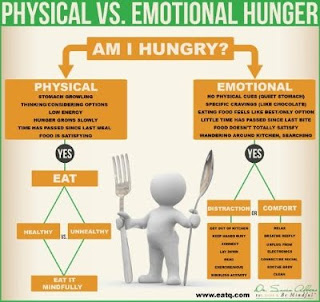Of course we all hear that in order to lose weight we need to watch what we eat and remain physically active, but it is so much more detailed than just that. According to the National Heart, Lung and Blood Institute, obese patients should "try to lose 5 to 10 percent of your current weight over 6 months". Obese patients should "set realistic weight-loss goals. . .". By starting off slow, weight loss won't seem so overwhelming. Losing "1-2 pounds a week" is ideal because it is possible and will "help keep off the weight"
Losing weight and being healthy isn't just a one time thing. It's something a person has to commit to, long term. Start learning about food and how to determine if it is considered healthy or not. Make sure you are not consuming more calories than you are burning or using. Stick to your goals and plans even after you have lost weight so that you are sure to keep off the weight. The National Heart, Lung and Blood Institute also states that very low calorie diets, shouldn't be done. It is very important to include different food groups into your meals daily to ensure you are properly nourished. We should also "limit" fast food, processed food and sugary foods which can contain very high calories. Another factor into losing weight is "portion control". Having smaller portions is healthier because it means less calories, but you are still getting the proper nutrition. Another tip from the NHLBI, is to eat more foods that contain water. These foods include fruit, vegetables and soups.
I found a video on Youtube about how the body absorbs different nutrients from Dr. Travis, a doctor on a show called The Dr's. This show is about health related issues and ways to stay healthy,
I also wanted to include a video about why water is so important to the body and how it plays into weight loss and overall health. This video was made by Registered Dietician, Lynn Goldstein.
Now we've got the nutrition part down, next is the physical activity part. Exercise is very important for our well-being. We all know exercise helps us to lose weight because we burn calories while being active. Exercise also helps strengthen our muscles. Also stated in a previous blog post, muscle helps burn calories faster. Aside from our muscles in our arms, legs or abs, exercise strengthens our heart muscle. :
"The four main types of physical activity are aerobic,
muscle-strengthening, bone strengthening, and stretching. You can do
physical activity with light, moderate, or vigorous intensity. The level
of intensity depends on how hard you have to work to do the activity." (NHLBI)
As you lose weight, your body won't have to work as hard while participating in physical activity.
If you have followed these guidelines religiously, and still haven't lost weight, The NHLBI suggests FDA approved "weight-loss medications. These medications are only approved for patients with a BMI of 30 or higher.
To answer my initial question of "Is obesity a disease, or self inflicted?", I am satisfied with the answers I got. I have come to the conclusion that it is a combination of both. Depending on the person, they may have made themselves that way by being unhealthy and not getting enough physical activity, or they may suffer from an illness that causes weight gain such as poly cystic ovarian syndrome or a thyroid problem. Unless we know that person, we have absolutely no way of knowing their background when it comes to obesity. It is common for people to judge at first glance, but I hope for the people that did read my blog, they think twice before making rude assumptions about people suffering from obesity.
Word count: 698








